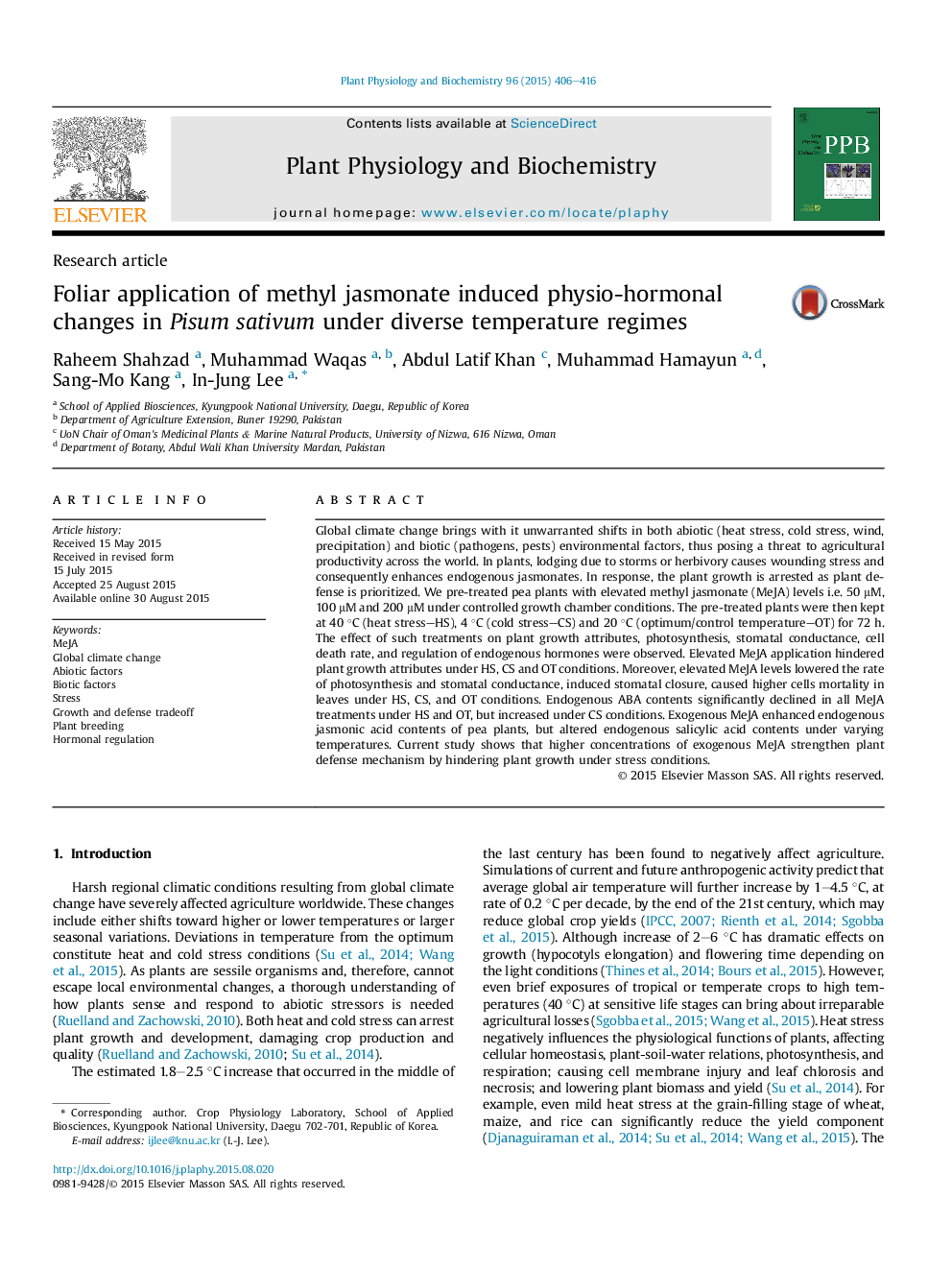| Article ID | Journal | Published Year | Pages | File Type |
|---|---|---|---|---|
| 8354805 | Plant Physiology and Biochemistry | 2015 | 11 Pages |
Abstract
Global climate change brings with it unwarranted shifts in both abiotic (heat stress, cold stress, wind, precipitation) and biotic (pathogens, pests) environmental factors, thus posing a threat to agricultural productivity across the world. In plants, lodging due to storms or herbivory causes wounding stress and consequently enhances endogenous jasmonates. In response, the plant growth is arrested as plant defense is prioritized. We pre-treated pea plants with elevated methyl jasmonate (MeJA) levels i.e. 50 μM, 100 μM and 200 μM under controlled growth chamber conditions. The pre-treated plants were then kept at 40 °C (heat stress-HS), 4 °C (cold stress-CS) and 20 °C (optimum/control temperature-OT) for 72 h. The effect of such treatments on plant growth attributes, photosynthesis, stomatal conductance, cell death rate, and regulation of endogenous hormones were observed. Elevated MeJA application hindered plant growth attributes under HS, CS and OT conditions. Moreover, elevated MeJA levels lowered the rate of photosynthesis and stomatal conductance, induced stomatal closure, caused higher cells mortality in leaves under HS, CS, and OT conditions. Endogenous ABA contents significantly declined in all MeJA treatments under HS and OT, but increased under CS conditions. Exogenous MeJA enhanced endogenous jasmonic acid contents of pea plants, but altered endogenous salicylic acid contents under varying temperatures. Current study shows that higher concentrations of exogenous MeJA strengthen plant defense mechanism by hindering plant growth under stress conditions.
Keywords
Related Topics
Life Sciences
Agricultural and Biological Sciences
Plant Science
Authors
Raheem Shahzad, Muhammad Waqas, Abdul Latif Khan, Muhammad Hamayun, Sang-Mo Kang, In-Jung Lee,
